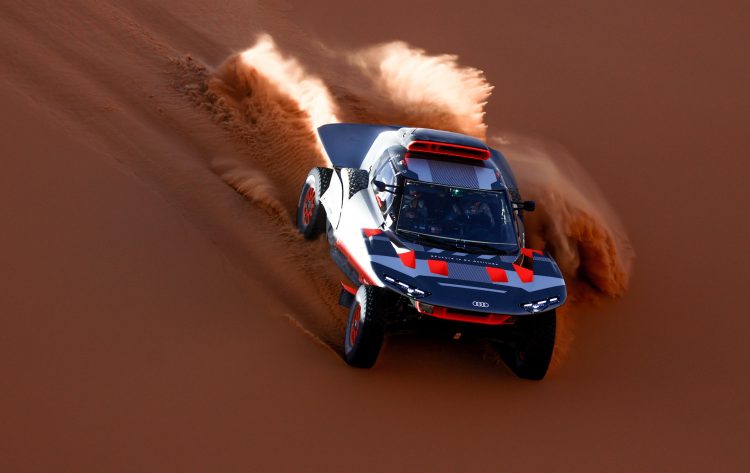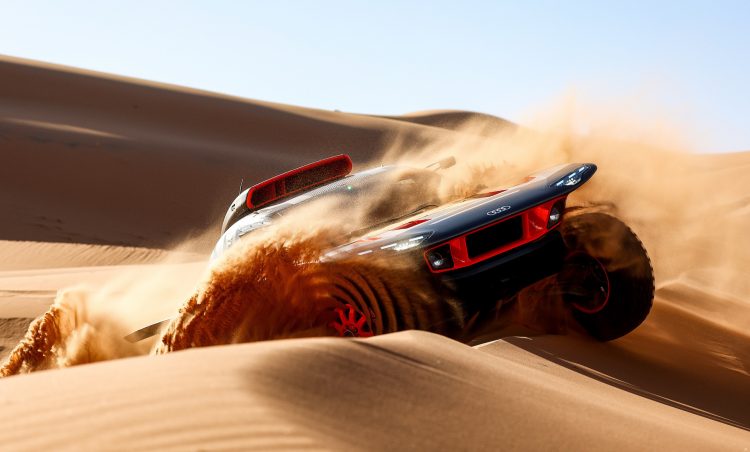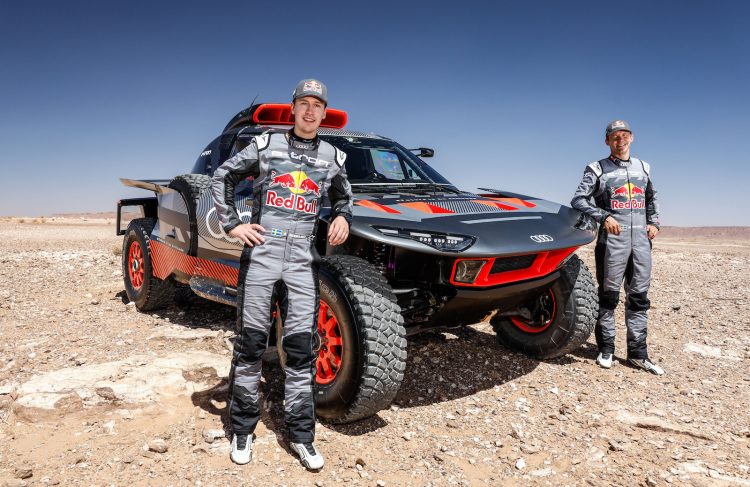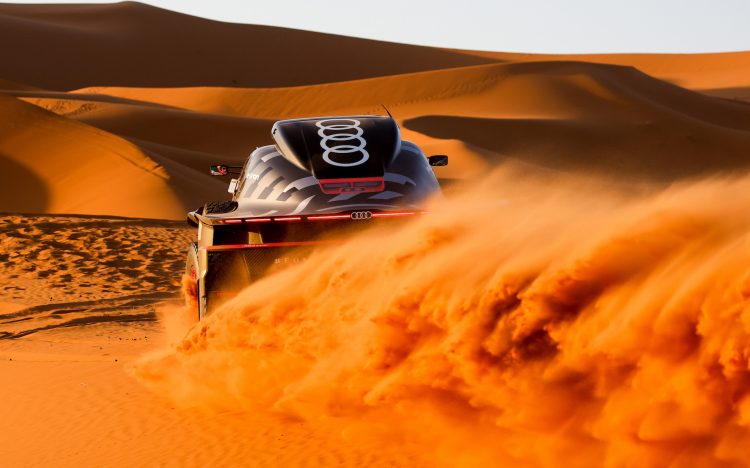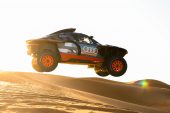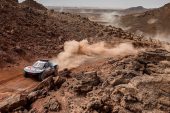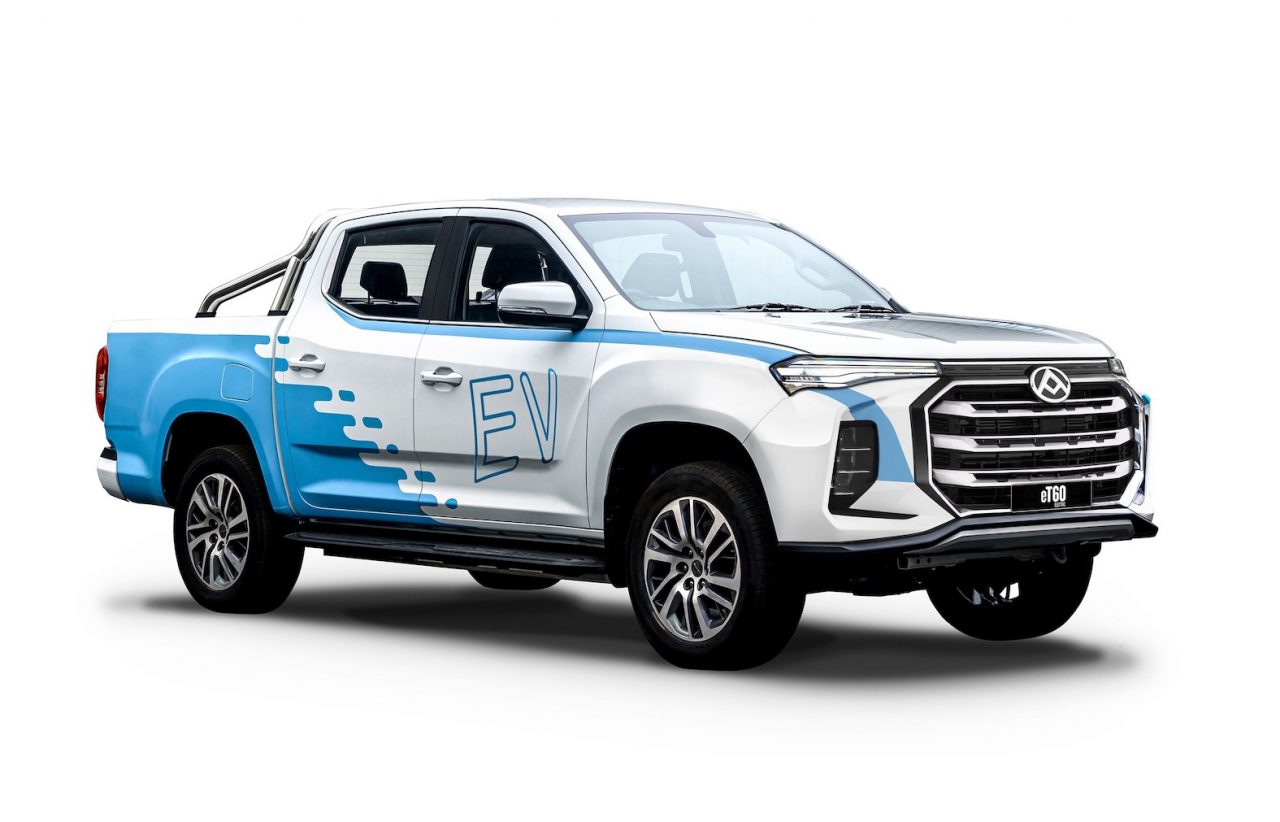Audi says that it has wrapped up a massive round of endurance testing for its RS Q e-tron E2 rally beast ahead of October’s Morocco Rally and the iconic Dakar rally in the New Year.
The Audi RS Q e-tron E2 is the company’s new and improved take on the hybrid off-roader we saw debut in late 2021 that performed admirably in its first-ever Dakar attempt, securing four stage victories earlier this year.
Audi says that it has been busy pushing the RS Q e-tron E2 in harsh Moroccan conditions across 4218km of testing in the hands of all six of its drivers and co-pilots, bringing its total testing regime to 6424km after some European tests.
The second-generation of the RS Q e-tron has seen weight reductions, an updated electric drive system, improved aerodynamics and high-speed stability headlining a long list of upgrades for its Dakar aspirations. It also sits lower to the ground than the previous RS Q e-tron, with Audi claiming a 15 per cent drag reduction overall.
In terms of the powertrain, Audi has retained much the same hardware that utilises a pair of electric motors snatched from its Formula E racer, placed over each axle, with an additional unit used as an inverter to feed the 52kWh lithium-ion battery pack.
There’s also a 2.0-litre turbocharged four-cylinder petrol that works in the background solely to supply power for the battery pack.
Audi has capped power outputs for the RS Q e-tron at 288kW, but says the powertrain is more than capable of pushing out 500kW. The company has not confirmed a weight figure for its hybrid rally car, but current rules mandate a minimum of 2100kg.
Expect to see the RS Q e-tron E2 making its way through the Moroccan countryside at the upcoming rally that kicks off on October 1, and at the upcoming Dakar event in Saudi Arabia that starts on December 31.
“Our plan was to have nine days of testing so that each driver pairing could work with the test vehicle for three days,” says Anrau Niubo Bosch, Audi’s project leader of track operations.
“There were two main objectives: to develop the second evolution for the Dakar Rally and to familiarise the drive teams with the new developments. The weight reduction creates new opportunities for suspension setup, which we want to exploit,” he added.
